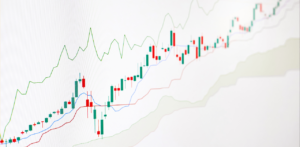Understanding the Impact of Fear on Trading:
Fear is a common emotion experienced by traders, and it often stems from the fear of losses and uncertainty. It can lead to impulsive decision-making, such as prematurely exiting profitable trades or avoiding entering positions altogether. Recognizing the detrimental effects of fear is the first step toward overcoming it.
Developing a Trading Plan:
One of the fundamental strategies to manage trading fears is to establish a well-defined trading plan. A trading plan outlines your financial goals, risk tolerance, entry and exit strategies, and overall trading methodology. By having a solid plan in place, you gain a sense of structure and confidence in your decision-making process, reducing the impact of fear on your trades.
Implementing Risk Management Techniques:
Risk management is a crucial aspect of successful trading. By implementing risk management techniques, such as setting stop-loss orders, limiting leverage, and diversifying your portfolio, you can mitigate the fear of significant losses. These techniques provide a safety net and help you maintain control over your trading activities, even during volatile market conditions.
Embracing a Positive Mindset:
Maintaining a positive mindset is essential for managing trading fears. Emotions such as fear and anxiety can cloud judgment and lead to irrational decision-making. Cultivate a positive attitude by focusing on the long-term success of your trading strategy, acknowledging that losses are a natural part of the trading process, and learning from them. Adopting a growth mindset allows you to view setbacks as opportunities for growth and improvement.
Staying Informed and Adapting:
Staying informed about market trends, economic indicators, and relevant news events can help alleviate trading fears. By being well-informed, you can make informed decisions based on data and analysis rather than succumbing to unfounded rumors or market noise. Additionally, be open to adapting your trading strategy as market conditions change. Flexibility and adaptability are essential qualities for successful traders.
Building Emotional Resilience:
Developing emotional resilience is crucial for overcoming trading fears. Emotional resilience allows you to bounce back from losses, maintain focus during turbulent times, and stay disciplined in your trading approach. Engage in activities that promote emotional well-being, such as exercise, meditation, or journaling, to strengthen your emotional resilience.
Key Takeaways:
- Fear is a common emotion experienced by forex traders, but it can be managed effectively.
- Develop a well-defined trading plan to provide structure and confidence in your decision-making.
- Implement risk management techniques, such as setting stop-loss orders and diversifying your portfolio, to mitigate potential losses.
- Maintain a positive mindset by focusing on long-term success and viewing setbacks as learning opportunities.
- Stay informed about market trends and adapt your trading strategy accordingly.
- Build emotional resilience through activities that promote emotional well-being.
Conclusion:
Mastering trading psychology is a vital component of achieving success in the forex market. By actively managing and overcoming trading fears, you can make informed decisions, maintain discipline, and improve your overall trading performance. Remember, fear is a natural emotion, but with the right strategies and mindset, you can navigate the market with confidence and achieve your financial goals.








